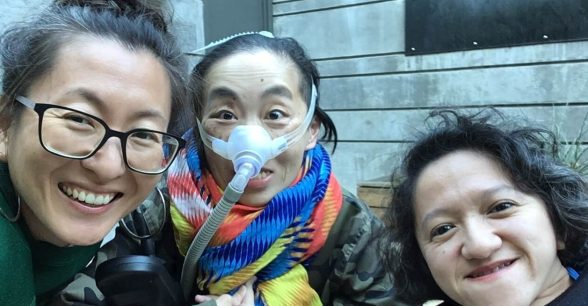No, I Can’t Always Give You 24 Hours’ Notice
“I’m sorry, but I’m not going to be able to make it to my appointment today. I’m in too much pain. I can’t sit long, let alone drive.”
“Since you’re calling with less than 24 hours’ notice, there will be a $25 charge.”
I remain silent while holding the phone against my ear, quietly counting to ten while my body screams in agony. “Dr. Westwood* is my pain doctor. I’m sure he would understand a sudden onset of enhanced pain.”
“I’m sorry, Ma’am, but it’s office policy.”
And so the merry-go-round continues. I need to see my doctor to get help for the pain wracking my body. But I can’t function on the day of my appointment because I’m in too much pain. So I’ll have to reschedule, and I’ll need to pay a $25 cancellation fee before I can reschedule. It’s office policy.
Doctors who deal with chronically ill or disabled people should be the most understanding when it comes to last minute cancellations by their struggling patients. Of all people, they should know that we wouldn’t cancel an appointment unless absolutely necessary—because we need their help. Without it, our pain or illness would be worse.
That kind of reasoning doesn’t resonate with offices that have adopted a policy of charging everyone who cancels. We’re all grouped together. You cancel; you pay. But the chronically ill are not the patients backing out of an appointment because we just don’t want to go or something better has come up.
We are physically and/or mentally unable to leave our homes—sometimes even our beds. And we’re penalized because we can’t make it to a visit that we scheduled two weeks ago, when our bodies weren’t rebelling against us quite as much. We scheduled it with the belief (or hope) that we’d actually be able to be there.
Knowing that we have to pay a fee before we can reschedule often forces us to endure pain longer until more money comes in. Many of us, even those on Medicare, still have co-pays and deductibles we must meet each year. Add in the cost of cancellation fees, and we’re left struggling to decide whether we can see our doctor that month or if we have to hold out until the following month.
Personally, I’ve had to cancel three doctors’ appointments in one week, one of which was a requirement for a medication refill—incurring cancellation fines from each office. No accommodation was offered that would enable me to get that needed medicine. Could the visit have been handled via video? Yes. How about a phone consultation with my doctor? That would have worked as well. But office policy precluded them from making such arrangements.
However, nothing stops them from taking the extra money I’m forced to pay because I canceled.
Most of the chronically ill/disabled community requires a well-established routine, certain modifications, or medically-necessary items before we leave home. We have to plan ahead, then adjust our plan when our bodies tell us, for example, that we’re not going to be able to drive twenty miles to an appointment. Many days, we cancel so much more than doctors’ appointments. While we understand a doctor’s time is valuable, we need them to understand our varying needs.
Sometimes doctors, tired of our constant need to reschedule, end the doctor/patient relationship. We call to schedule an appointment only to be told we can’t be seen any longer by the one doctor we need the most. This can be devastating as it requires us to start all over with another doctor, one we hope we can find within our insurance plan. And for those who are located in rural communities, that pain doctor that now refuses to treat us, might be the only one located within a fifty-mile or more radius.
Being told we can no longer see the doctor who has been treating us for years often creates a firestorm inside of us that not only intensifies our pain but affects our mental health. We depend upon our doctors to keep us going, and sometimes we need flexibility. While a canceled appointment might be inconvenient for a doctor, it’s often a painful and regrettable decision for us.
We aren’t asking doctors for special privileges, just compassion and accommodations that will allow us to get the medical assistance we need without further compromising our health. Offering video visits, telephone visits, or other alternatives on days when we can’t make appointments allows us to avoid fees we can’t pay and not live in fear of losing our healthcare providers. We’re all trying to survive, to live the best lives we can. When our bodies are under attack, we don’t want to pay $25 for the chance to fight another day.
*Name(s) changed for privacy
About Rooted In Rights
Rooted in Rights exists to amplify the perspectives of the disability community. Blog posts and storyteller videos that we publish and content we re-share on social media do not necessarily reflect the opinions or values of Rooted in Rights nor indicate an endorsement of a program or service by Rooted in Rights. We respect and aim to reflect the diversity of opinions and experiences of the disability community. Rooted in Rights seeks to highlight discussions, not direct them. Learn more about Rooted In Rights




Best dialogs in this blog, it’s make me happy and innovative for my new Nobel. but how do you collect this respected sources for your blog.